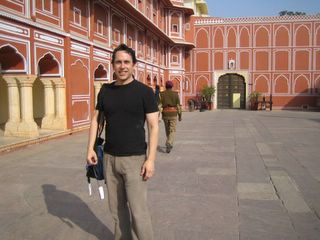The Oscars are coming and I, along with everyone, is predicting the same thing: "Brokeback Mountain" will walk away with most of the major prizes. I thought the film was beautiful, brilliantly made, and moving but this is only part of the story. "Brokeback Mountain" is going to clean up because the movie happens to be at the right place at the right time to express a much bigger cultural phenomenon: America's Oprah moment regarding gay rights and acceptance.
What do I mean by this? Let me start by briefly reviewing our cultural history.
Two decades ago, Oprah Winfrey burst onto the national scene. An Oscar-nominated turn in "The Color Purple" more or less coincided with the national broadcast of her talk show, which previously was local to Chicago. About five seconds later, she became anchored to the national consciousness and we haven't let go since. It's hard to imagine an America without Oprah Winfrey--who else would we aspire to be friends with?
While Oprah is great (love her!), her success isn't really about her. It is about what she represents to an entire culture, and what that culture needed at the time she showed up. Media may influence the culture but often it lags behind it. This was the case in terms of race in the mid-1980s. Before Oprah came along, African-Americans had a limited presence in the media. To the extent they were included in television shows or movies, they were mostly tokens. They were people to look at, not people to connect with. (How easy to forget that MTV for years was essentially all-white, and that it was Michael Jackson who integrated it!)
By the time Oprah came around, people--meaning the white majority as well as other minority groups--were yearning for more authentic connection across race that they didn't find in the media. They wanted, on some level, a more real expression of certain basic principles of our society--justice, equality, acceptance regardless of race. The culture needed someone to be Oprah, and she stepped up to the plate. Tens of millions of people greeted her with open arms. Most American still live in racially segregated neighborhoods and attend racially segregated skills, but in this limited way we now connect across race.
What does this have to do with "Brokeback Mountain?" This year is the Oprah moment for gay acceptance. For twenty years, Americans have steadily become more comfortable with homosexuality and bisexuality, and the idea that different people are just different, not evil. At the same time, gay people themselves have become more out and more proud, and focused more on living our lives rather than fitting into someone else's image of what we are supposed to be. This is the state of the culture as a tearfully romantic movie about two super-attractive cowboys has coming riding into town.
"Brokeback Mountain" is a colossal hit because it's the country's stand-up-and-be-counted moment. It's a cultural touchstone, a chance for people to define themselves as for or against, as with the program or against it, as part of the solution or part of the problem. And as it turns out, tens of millions of people are quite comfortable saying where they stand.
It's not at all paradoxical that all this is occurring a year after Republican (and some Democrat) politicians stoked fears of gay marriage to rustle up election victories in Ohio and therefore the nation, and in the same year that the president tried to write discrimination into the Constitution. The political world came up with one result, but the culture has come up with another.
skip to main |
skip to sidebar

